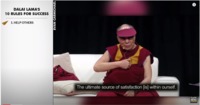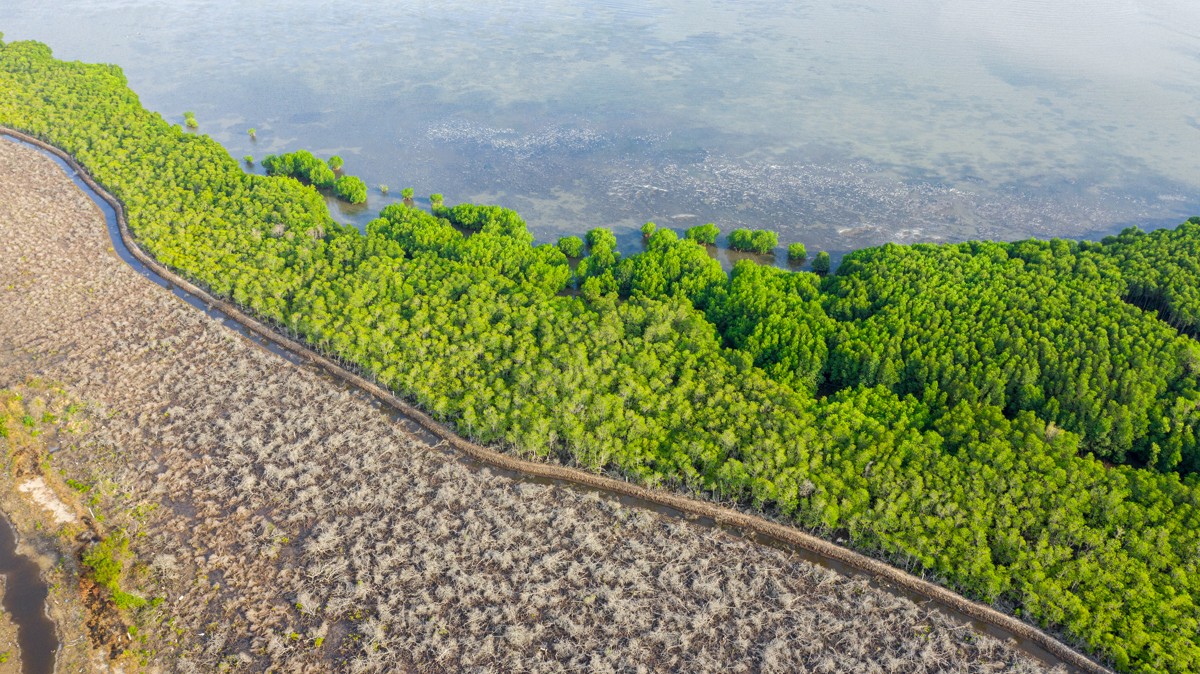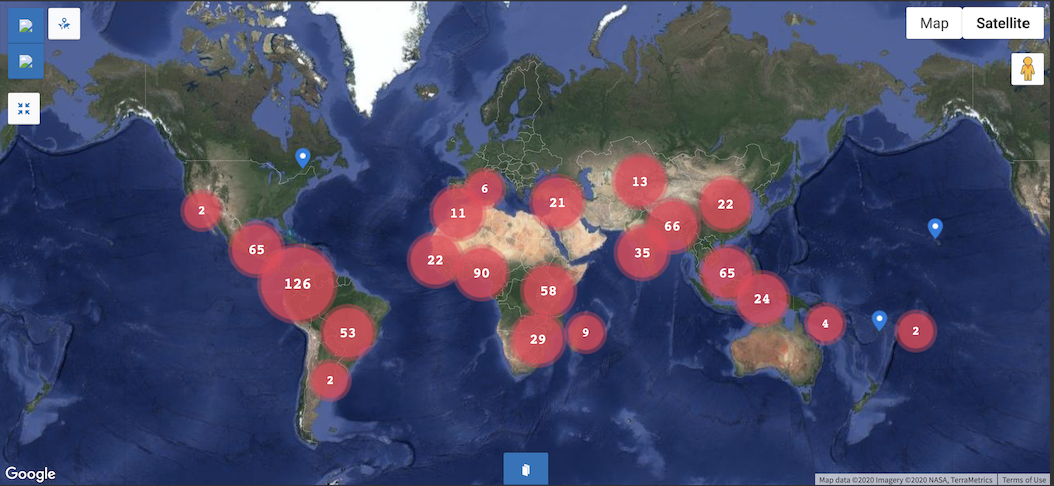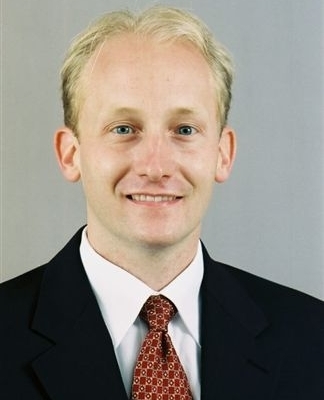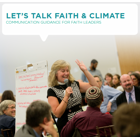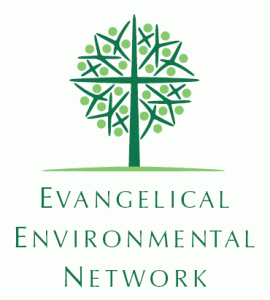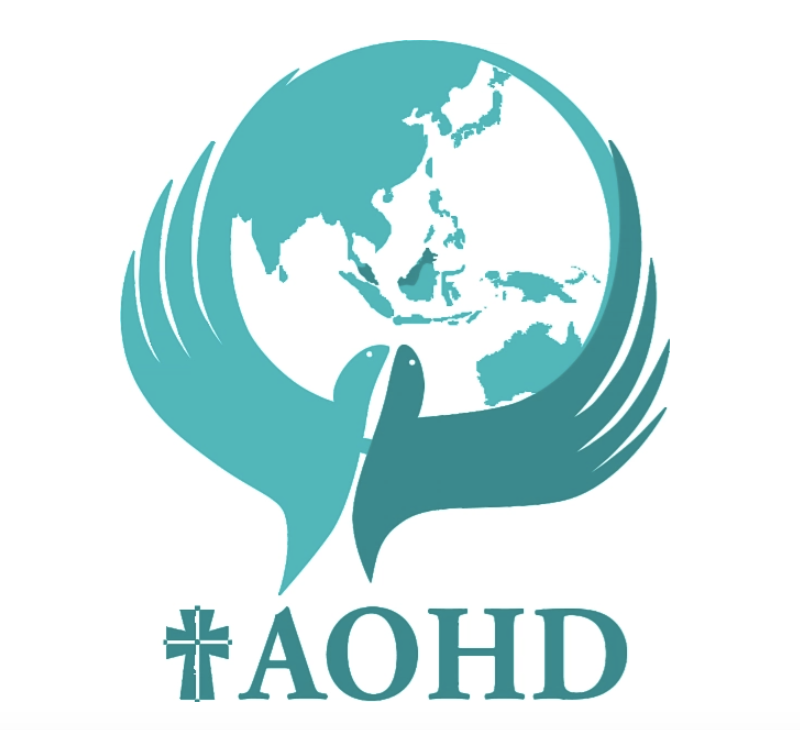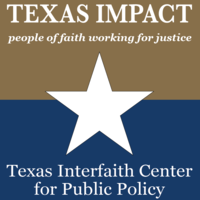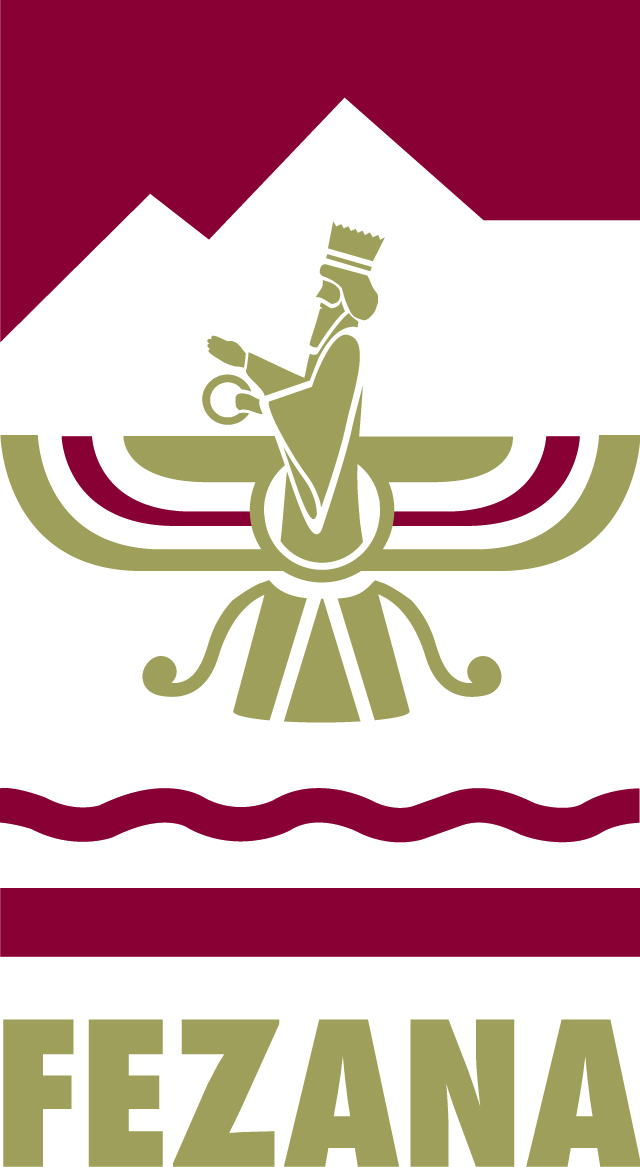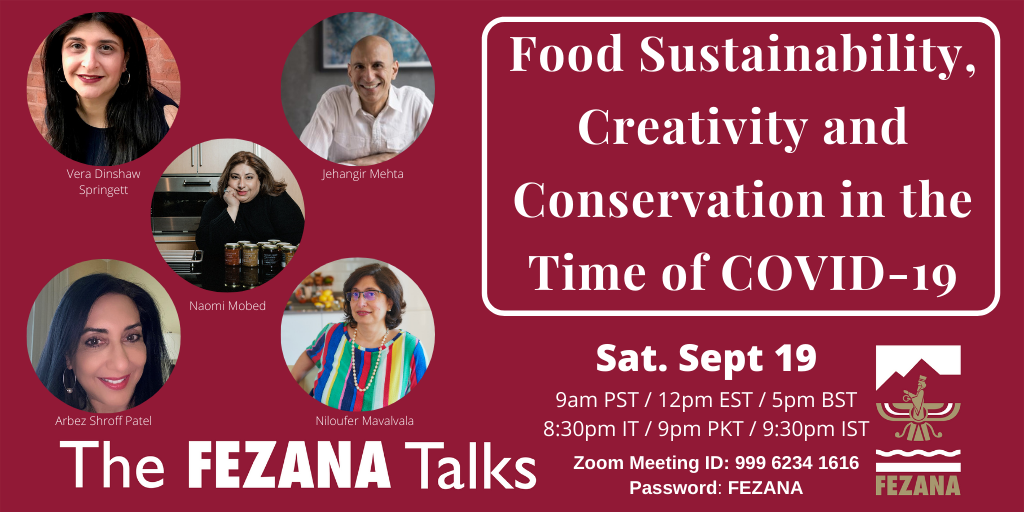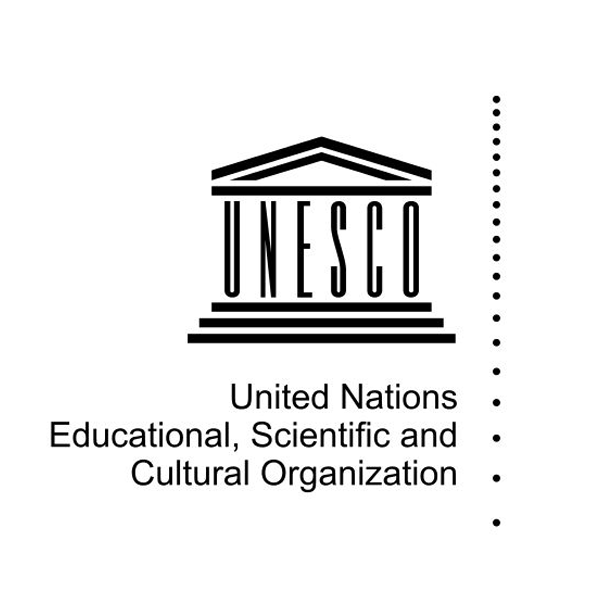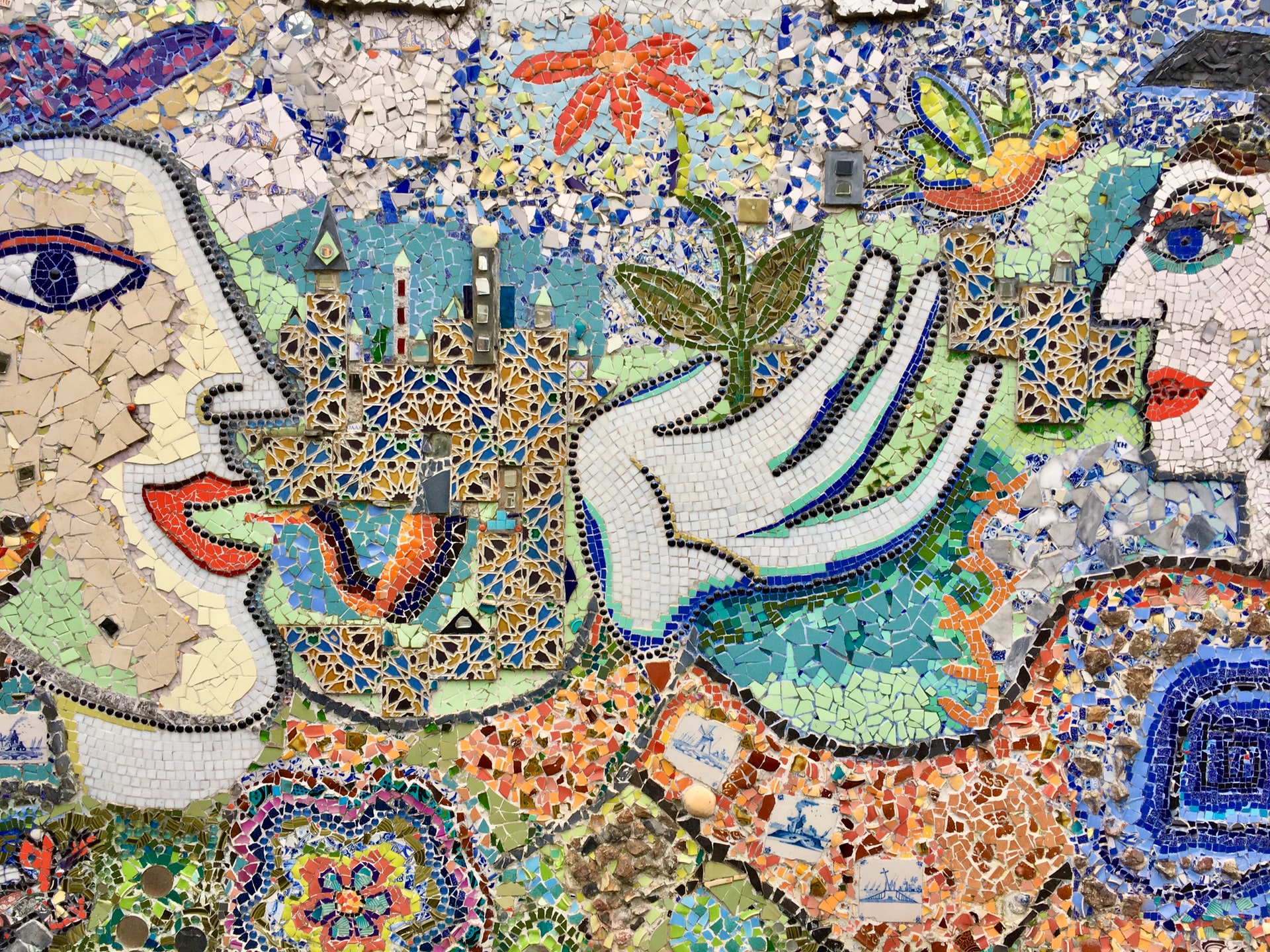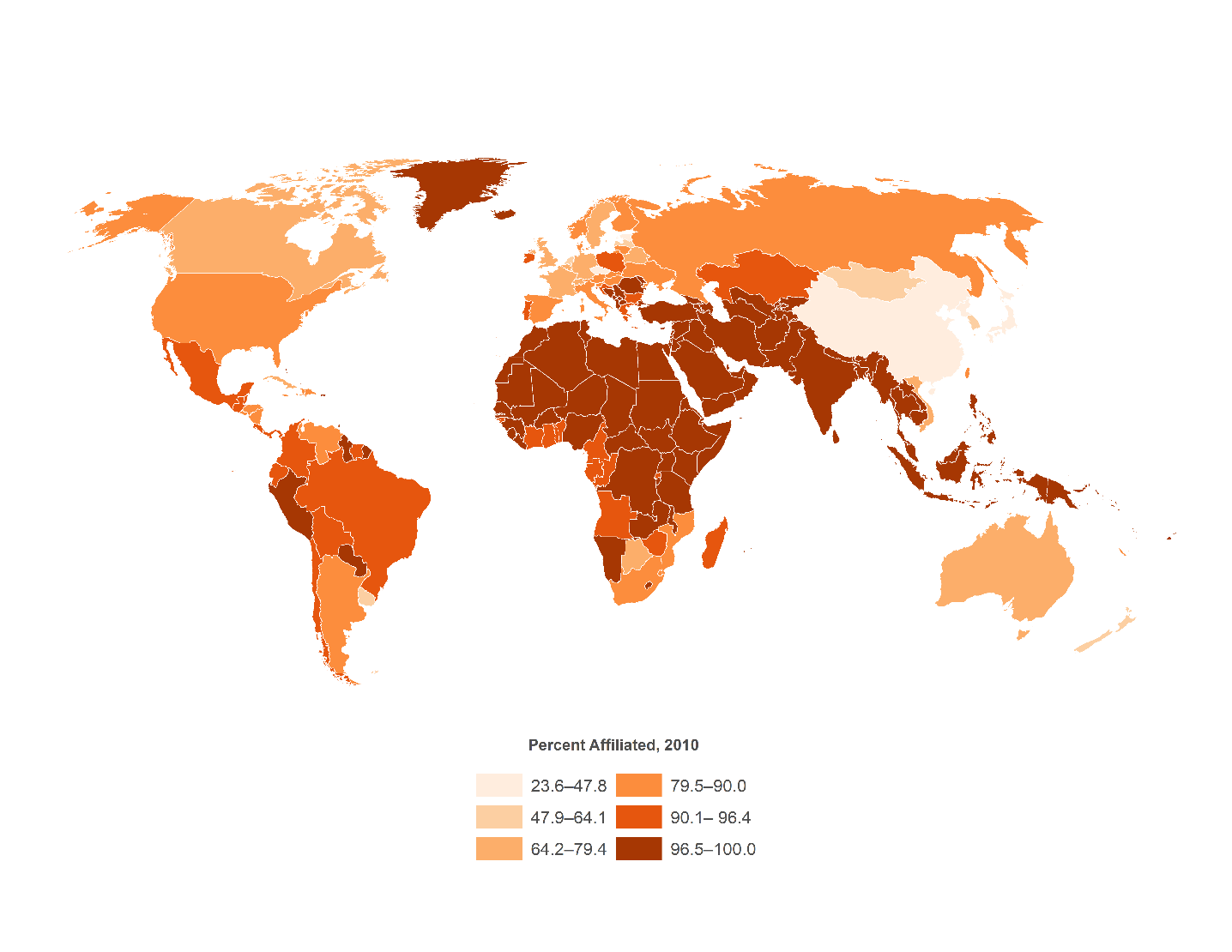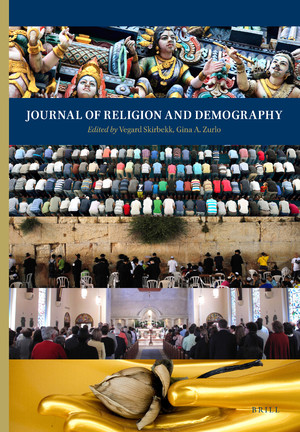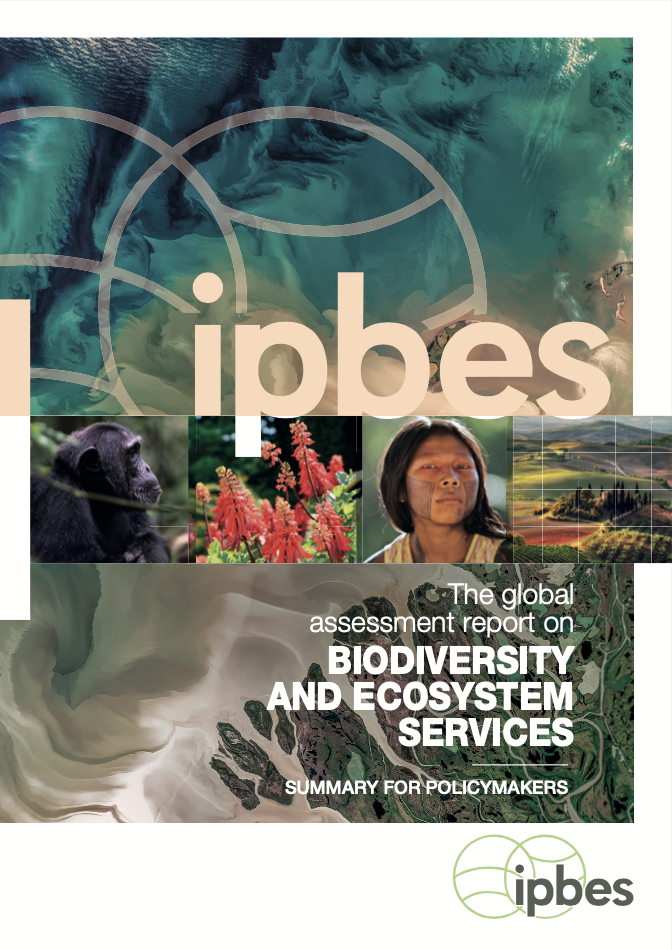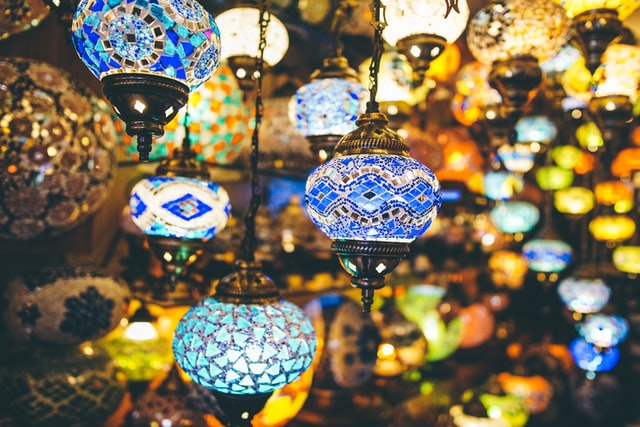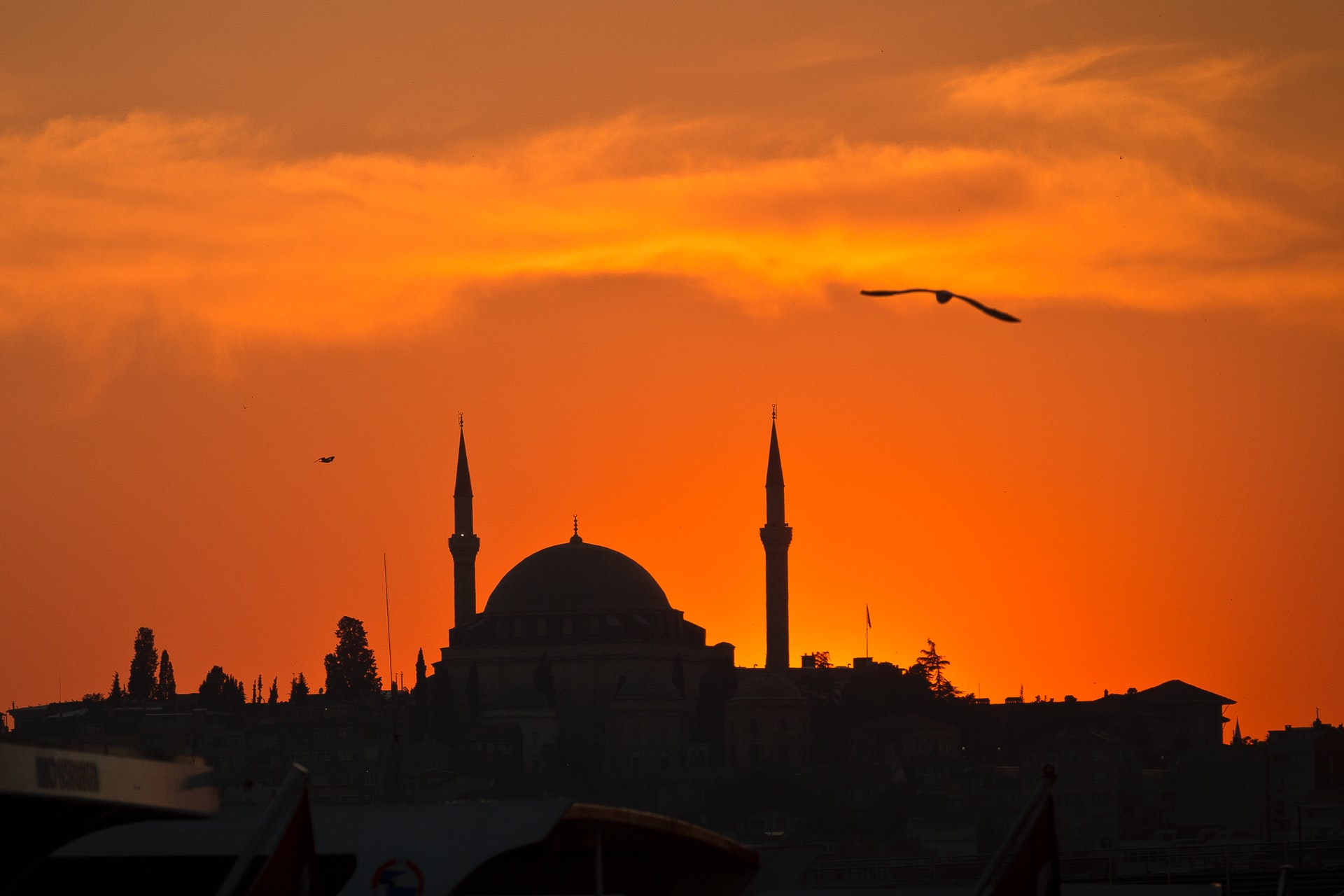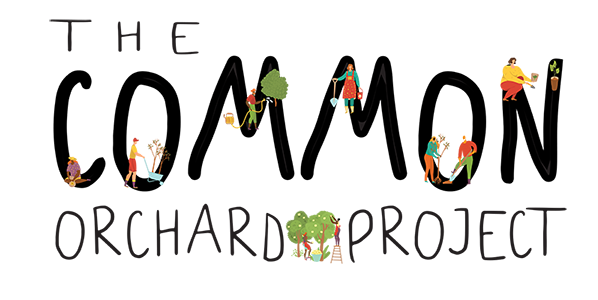Search
96 items
-
The Wisdom of Houseplants
There has been a recent rise in the popularity of houseplants. This resource relates aspects of tending to houseplants to different ways you can be more mindful about your own life. Through caring for the houseplants, this web page reminds you to be adaptable, to be patient, and to expand yourself. While also additionally reminding the reader that letting go and paying attention to your physical health are both key in positive personal growth. -
Dalai Lama's 10 Rules for Success
This video is the Dalai Lama speaking of how to calm ones mind as well as how to connect with the universe through inter connection of self and creation. -
Muslims for Progressive Values
MPV (Muslims for Progressive Values) establishes and nurtures vibrant progressive Muslim communities. We do this by creating opportunities for religious discourse, volunteer and community activities, and cultural events bringing together the arts, spirituality, and social activism.
Since our inception, we have secured DPI and ECOSOC Special Consultative Status at the U.N., and a founding member of the Alliance of Inclusive Muslims, or AIM, an umbrella organization spanning 13 countries and 17 cities.
MPV is a progressive Muslim voice on contemporary issues. We voice our perspectives with policy briefs, by participating in civil discourse, engaging with the media and government entities, and by partnering with both Muslim and non-Muslim progressive organizations.
MPV promotes theologically-sound frameworks for Islamic liberalism. We seek to reinvigorate the Islamic tradition of ijtihad (critical engagement and interpretation of sacred texts) and intellectual discourse. We do this by collaborating with religious scholars and developing position papers on theological issues that are accessible to a wide audience.
Muslims for Progressive Values has been in existence since 2007. Quietly and diligently, we have been building our progressive community, one city at a time, and now one country at a time. Since its inception, MPV has expanded to include communities in Los Angeles, San Francisco, Washington DC, Atlanta, Columbus (OH), New York, Chicago, Boston, Minnesota and The Netherlands. -
Applying the hard lessons of coronavirus to the biodiversity crisis
In this article, Jamison Ervin, Manager of Nature for Development at UNDP, summarizes key lessons we have learned during the Covid-19 pandemic and how these can be applied to environmental protection efforts. -
Nature-Based Solutions Database
As a part of the Equator Initiative and the UNDP (United Nations Development Programme), the Nature-Based Solutions Database connects communities through sharing thousands of viable eco-solutions from 500+ communities across five continents.
Explore the Solutions Database to learn how outstanding local communities and indigenous peoples around the world are making possible the achievement of the UN Sustainable Development Goals through nature-based actions.
-
Profile: Jerry Freewalt
Jerry Freewalt is Director of the Office for Social Concerns of the Catholic Diocese of Columbus, Ohio. In this capacity, he serves as an educator and advocate to further the understanding of the Church’s social justice teachings. Jerry joined the office in 1995 as the respect life coordinator. Jerry also administers the respect life program, parish social ministry, rural life, jail and prison ministry, advocacy for persons with disabilities, and other education and advocacy efforts. -
Let's Talk Faith and Climate: Communication Guidance for Faith Leaders
Let's Talk Faith and Climate: Communication Guidance for Faith Leaders is designed to be useful to both experienced and novice climate change and faith communicators. This guide synthesizes the latest academic research and message testing on climate communications from across the social sciences into a practical guide to support meaningful discussions on climate change and faith among individuals and groups.
This guide offers tips on how to initiate new conversations with the faithful, how to create one’s own successful, value-based messages, and how to utilize specific wording that has been tested for its ability to bring people together regarding climate issues. Additionally, this document provides guidance on how to more deeply integrate creation care concerns into one’s own organization, ministry, or denomination.
This, along with the many resources offered by ecoAmerica’s
Blessed Tomorrow program, will allow faith leaders to become as adept at talking about climate change as they are at inspiring others to act on behalf of our shared future. -
Mercury Pollution a Concern of Evangelical Environmental Network
This article talks about mercury pollution and the pressing issues in need of attention and advocacy. The pro-life evangelicals have been pushing for more restrictions and regulations relating to mercury. This article intends to show how mercury poisoning hurts human lives and its different aspects that have long been overlooked. -
Columban Center for Advocacy and Outreach
The Columban Center for Advocacy and Outreach (CCAO) was founded in 1985 as the national advocacy office for the Missionary Society of St. Columban in the United States.
CCAO serves as the line of communication between Columban missionaries on the ground and policy-makers in Washington, D.C. Their mission is to work towards a more just, peaceful, and environmentally sustainable world by engaging in the political process guided by our faith and the Gospel. They work for structural change for the poor and marginalized populations Columbans serve around the world. Moreover, they advocate for policies and structures that bring society and the world into the right relationships with all of God’s Creation.
CCAO follows Catholic Social Teaching as their lens to engage in legislative advocacy and community engagement. -
AOHD (Archdiocesan Office for Human Development)
AOHD promotes activities concerning charity, integral human development, justice and peace within the Catholic Church's Kuala Lumpur Archdiocese. It operates under the purview of the AOHD Secretariat and Board of Management. -
Texas Impact and Texas Interfaith Center for Public Policy
Texas Impact exists to put faith into action. They equip faith leaders and their congregations with the information, opportunities, and outreach tools to educate their communities and engage with lawmakers on pressing public policy issues. They are an interfaith group that works together on issues such as racial discrimination, climate change, economic justice, and human rights that impact the most vulnerable people in our communities.
The Interfaith Center is Texas Impact’s 501(c)(3) research and education partner. The Interfaith Center’s board includes thought leaders; government affairs professionals; public servants; and communications experts. They provide the political insight and guidance that help Texas Impact offer clear, relevant, information that faith communities need to be effective advocates. -
Plant with Purpose
Plant With Purpose’s programs equip farming families around the world to increase farm yields, heal damaged ecosystems, improve nutrition, and increase household savings and opportunities. Always standing with the world's most vulnerable populations, this integrated approach solves two major issues facing the world today: environmental degradation and rural poverty.
You can plan a tree or fundraise in partnership with Plant with Purpose. -
Federation of Zoroastrian Associations of North America (FEZANA)
FEZANA is a non-profit religious group registered in the state of Illinois and formed to function as the coordinating organization for Zoroastrian Associations of North America. It serves as the coordinating body for 27 Zoroastrian Associations in the United States and Canada.
On this website, you can learn more about the community of FEZANA , Zoroastrianism, their sustainability reports and other social activities.
-
The FEZANA Talks #9: Food Sustainability, Creativity & Conservation During COVID-19
COVID has changed the way we eat, cook and live in many ways — good and bad. This discussion hosted by FEZANA (the Federation of Zoroastrian Associations of North America) focuses on the impact of the pandemic on the food supply chain, and how it affected the availability of the basics, leading people to get more creative in the kitchen. Everything from making our own bread to using leftovers to create new unexpected meals, has allowed people to ramp up their cooking skills, rely on sustainability and be more conscious of food wastage. Historically resembling the ways of our ancestors. -
UNESCO Routes of Dialogue
Throughout history, peoples have exchanged cultural experience, ideas, values and goods through art, trade and migrations.
Human history is the tale of such journeys. As we cross into the twenty-first century, we too have embarked on a journey – whose destination holds out the promise of justice, well-being and a peaceful existence for all.
These encounters, in which individual travellers or communities have conveyed their ideas and customs across whole continents and oceans, are celebrated in a series of UNESCO projects. -
Towards interreligious understanding and global peace: a compendium by The United Religions Initiative (URI) and UNESCO Chair for Peace and Intercultural Understanding
The United Religions Initiative (URI) in collaboration with UNESCO Chair for Peace and Intercultural Understanding and Banaras Hindu University is developing a compendium on Interreligious/Interfaith Dialogue, Good Practices and Future Directions. This Book seeks to collate innovative narratives and good practices of interreligious/interfaith dialogue from across cultures and regions to supplement the expanding scope and outreach of UN engagement with religious entities. To this end, faith leaders, activists, and FBOs are encouraged to contact Tanya Sablok (tsablok@uri.org) to share the vision and contribution to interfaith and intercultural dialogue. Visit the UNESCO page to learn more about their work. -
How Religion Influences Our Relationship With the Environment
This article, drawing references from a study in the Journal of Religion and Demography, summarizes how religions influence many environmentally relevant behaviors.
The author and his colleagues discovered that countries with a lower religious population utilize more resources and emit more emissions, but they are also better prepared to deal with the environmental difficulties that emerge since they are wealthier. On the other hand, countries with more religious populations tend to use fewer resources, but they also have less capability to address environmental concerns and are more vulnerable to negative consequences, owing to their high levels of poverty and continued population increase.
The link between religion, poverty, environmental impact, and governance is intricate and ever-evolving; the field continues to call for more research. -
Religious Affiliation and Environmental Challenges in the 21st Century
"As the impacts of climatic change increase, the share of the world population with a religious affiliation is expected to rise (from 84% in 2010 to 87% by 2050). Religion is important for climate change relevant behaviours, including fertility choices or whether one sees climatic change as due to human action or related to forces beyond human control. We conduct exploratory and descriptive statistical analyses to better understand the associations among religion, on the one hand, and economic development, greenhouse gas emissions, exposure to environmental stressors, and attitudes, beliefs and environmental performance, on the other. We show that countries with lower shares that are religious tend to have more emissions, to be better prepared for environmental challenges and have low or negative population growth. Countries with a greater proportion of religiously affiliated tend to have higher population growth, face more environmental risks and to be less prepared for those risks. Identifying groups that disproportionally cause or are exposed to environmental risks represents an issue of environmental justice. Understanding the religious composition of the world along with environmental changes can further help identify which environmental policies that could be more effective." -
IPBES Global Assessment Report Summary on Biodiversity and Ecosystem Services for Policymakers
This report represents a critical assessment, the first in almost 15 years (since the release of the Millennium Ecosystem Assessment in 2005) and the first-ever carried out by an
intergovernmental body, of the status and trends of the natural world, the social implications of these trends, their direct and indirect causes, and, importantly, the actions
that can still be taken to ensure a better future for all. These complex links have been assessed using a simple, yet very inclusive framework that should resonate with a wide range of
stakeholders, since it recognizes diverse world views, values, and knowledge systems. -
People of faith are allies to stall climate change (Nature Magazine)
Tobias Müller is a political scientist who studies how religious groups respond to problems, from environmental crises to domestic violence to racism. In this article, he explores changes in the intersection of climate science and communities of faith. Müller shares with us patterns he's observed and strategies he's learned in his years in the field that help strengthen collaboration and the power to pursue climate justice. Some core ideas include:
1. Collaborate with religious scientists and local leaders.
2. Stories speak louder than graphs.
3. Talk about what matters to you and your audience. -
Green Ramadan
In this letter from Sayyid M. Sayeed, the
President of Islamic Society of North America, he voices the responsibility of Muslim communities as caretakers of the earth and calls for community members to join in the ISNA efforts to adopt environmentally friendly practices.
"I earnestly request that your mosque/Islamic Center join in 'Greening our Ramadan Campaign.' Let us all work together to reduce our carbon footprint. Have a blessed Ramadan." -
Green Muslims Ramadan Toolkit
Ramadan is a time to reflect, exercise self-control, and cultivate connections to one's faith. This three-part toolkit hopes to enhance the Ramadan experience using those same concepts but building more environmentally friendly habits while connecting one
with their faith in a unique way.
Each day highlights an Ayah, a quote, or a hadith that aspires to inspire you to action. The “challenge yourself” section of the day gives you a suggestion on how to adjust your habits, and the “reflection” section hopes to help you analyze your current habits in order to make the habit-forming both action-oriented and intellectual. -
Green Umbrella Impact Team: Faith Communities Go Green
MISSION: Partnering with religious communities to create a more sustainable and equitable future for all by mobilizing their moral voice to reduce the risk of catastrophic climate change.
VISION: Religious communities collaborating to integrate care for creation in their lives and society. -
Green Umbrella: Regional Sustainability Alliance
Green Umbrella is the regional sustainability alliance of Greater Cincinnati, with over 200 member organizations and over 200 individual members passionate about enhancing the environmental health and vitality of our region.
Green Umbrella facilitates collaboration among non-profits, businesses, educational institutions and governmental entities to meet the environmental, social, and economic needs of today while preserving the ability of future generations to thrive. -
The Common Orchard Project (Incubated by Green Umbrella)
The Common Orchard Project works to install and maintain hundreds of small orchard plantings across Greater Cincinnati and grows “commonly held” resources by educating communities on fresh food and urban land management. These common orchards provide increased food access, tree canopy, walkable greenspace and community building in neighborhoods that have experienced disinvestment. Founded in 2017 by Chris Smyth, the effort has planted 12 orchards across Cincinnati and two in Cleveland, with plans to install 50 more by 2024.
In 2021, The Common Orchard Project was been adopted by Green Umbrella as an "accelerator project." Chris Smyth continues to serve as the director of the project as it incubates within Green Umbrella and will plant more orchards each year thanks to Giving Grove’s support. Learn more about the project at www.commonorchard.com.


